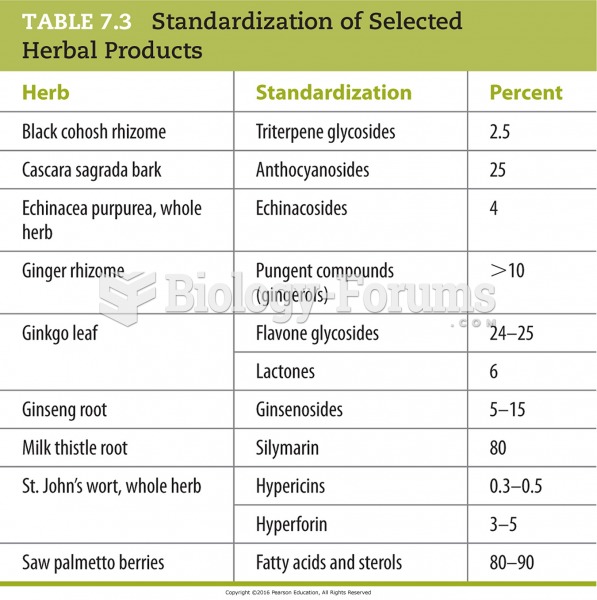Answer to Question 1
Correct Answer: 3
Rationale 1: Standardization ensures a given amount of ingredient is in the product, but does not ensure efficacy.
Rationale 2: Supplements do not undergo clinical trials.
Rationale 3: Standardization uses a marker substance, such as a percentage of an herb's active ingredient, to quantify a product's potency. This can allow for strength comparisons among available products, but it does not address efficacy or safety.
Rationale 4: The FDA does not approve herbal supplements.
Global Rationale: Standardization uses a marker substance, such as a percentage of an herb's active ingredient, to quantify a product's potency. This can allow for strength comparisons among available products, but it does not address efficacy or safety. Standardization ensures a given amount of ingredient is in the product, but does not ensure efficacy. Supplements do not undergo clinical trials. The FDA does not approve herbal supplements.
Answer to Question 2
Correct Answer: 2
Rationale 1: Many health care providers are informed about herbal products.
Rationale 2: Nurses need to be informed about the advantages and limitations of using herbal products in order to educate their clients, who then can make informed decisions regarding their usage.
Rationale 3: The nurse should be sensitive to the client's need for alternative therapies and not be judgmental.
Rationale 4: The U.S. government does not rigorously test the safety and efficacy of these products.
Global Rationale: Nurses need to be informed about the advantages and limitations of using herbal products in order to educate their clients, who then can make informed decisions regarding their usage. Many health care providers are informed about herbal products. The nurse should be sensitive to the client's need for alternative therapies and not be judgmental. The U.S. government does not rigorously test the safety and efficacy of these products.







